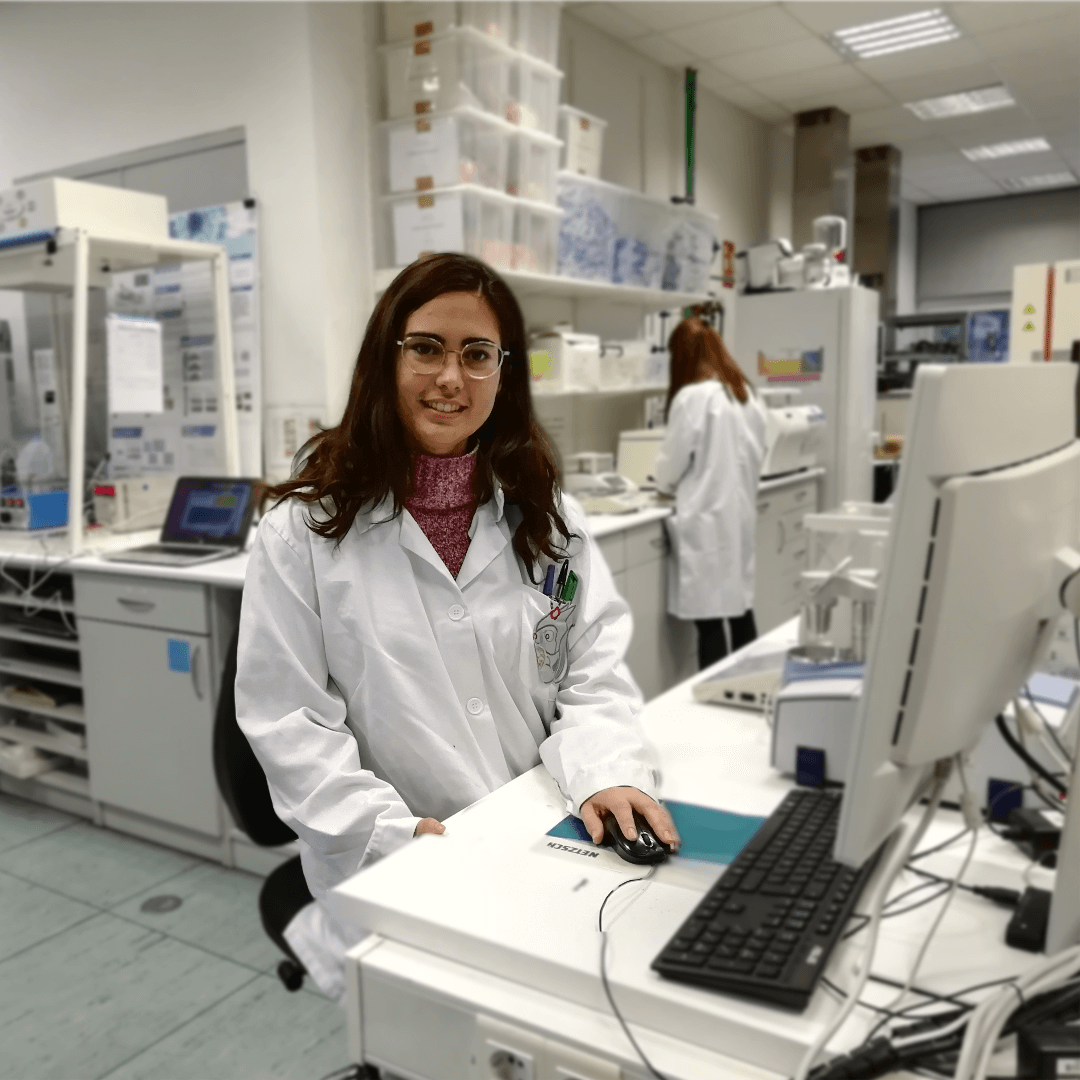The attraction that Eva Pacheco (Alicante, 1992) feels for knowing and understanding how things work has remained a constant throughout her life. With a broad training achieved after graduating in Chemical Engineering at the University of Alicante and in the qualifying master’s degree in Chemical Engineering at the Polytechnic University of Madrid – with a stay for part of it at UNINA Federico II (Italy) -, the chemical engineer joined INFINITIA’s Forensic Engineering team in 2019. However, before that, she started her professional career learning in other sectors.
After completing her degree, she worked in the materials development department of SABIC, a Saudi Arabian company based in Cartagena, where she was responsible for a project to develop a new polymeric material. Some time later, in 2018, she moved to Zaragoza for her Master’s internship, where she also developed her Master’s Thesis on the study of IMM technology to improve the self-cleaning properties of plastics.
Currently his main functions in INFINITIA are to contribute his knowledge in materials technology and, in particular, in everything related to polymers and failure mode analysis. In her day-to-day work, as she tells us, she carries out transversal tasks, ranging from attracting customers who may need the company’s support, to the development of proposals and their implementation, including experimental analysis in the laboratory.
After a year as an intern at INFINITIA, Eva was faced with a new position in which she had to develop the commercial side of the company. “None of my colleagues were dedicated to this and my internship had been based solely on my technical development,” she explains. “This new role was a great personal challenge for me and a motivation that is allowing me to grow and develop professionally in a completely different field until then,” he points out.
As a specialist, he sees materials, energy and information as the driving forces behind economic development. Specifically, as she puts it, materials engineering plays a fundamental role in the manufacture of any product, since it covers different stages: design, procurement, production, evaluation of in-service behavior or recycling alternatives after its useful life. For this reason, and as she concludes, she believes that it is a fundamental pillar for the development of new technologies and products, as well as being essential to face the current problems of scarcity, raw materials, environmental sustainability and circular economy.

